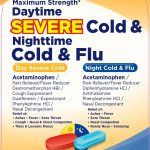Contents
15 Soft Foods to Eat After Wisdom Teeth Removal
Every person has unique requirements following wisdom teeth removal. However, typically, you should eat a soft diet for at least a week.
A major dental milestone that usually takes place between the ages of 17 and 21 years is the appearance of wisdom teeth or third molars.
Because they erupt at a more mature age, they have been named “wisdom teeth .” When they erupt correctly, healthy wisdom teeth can help you chew normally, but it can cause problems if there is not enough space for them to surface, or they come through in the wrong position.
A wrongly positioned or impacted wisdom tooth can give rise to problems, such as:
- Bacterial growth due to food trapping
- Difficulty flossing in between the wisdom teeth and the molars next to them
- Infection can lead to pain, swelling, and stiffness in the jaw
- Damage to the adjacent teeth
These problems may require wisdom tooth removal in some people. Eating certain foods while avoiding others may help with a swift and comfortable recovery after the procedure.
15 soft foods to eat after wisdom teeth removal
For the first 24 to 48 hours after wisdom teeth removal, it is recommended that you consume liquids and foods that do not require any chewing. After this, you can choose soft, nutritious foods that are easy to chew and swallow.
- Soups
- Tomato or pumpkin soups are easy to consume and satisfying.
- Soups are rich in vitamins and minerals that help ensure you meet daily nutrition recommendations when avoiding most solid foods.
- Mashed potatoes or sweet potatoes
- They are rich in calories and nutrients, crucial for a faster recovery.
- Broths or stocks
- Similar to soups, broths are an excellent source of energy and nutrition after dental surgery.
- You can try different broths, such as bone chicken, beef, or vegetable broth.
- Mashed bananas
- Bananas are incredibly nutritious, soft, and easy to gulp.
- In addition, they provide several vitamins and minerals, such as potassium, vitamin B6, manganese, and folate.
- Ice creams
- They are often recommended after dental surgery because the coldness may have a soothing effect on the wound site.
- Because regular ice creams are typically high in sugar and fats, homemade banana ice cream could be the best alternative.
- Scrambled eggs
- Eggs are a source of high-quality protein, rich in vitamins and minerals, and are amongst the best foods to be eaten after any surgery.
- Scrambled eggs are easy to chew and swallow and a time-saving wholesome meal.
- Avocado
- Avocado is a superfood that is low in carbs but high in healthy fats.
- They are rich in vitamins K and C and potassium and can be consumed easily when whipped or mashed.
- Smoothies
- When you are away from regular solid meals, smoothies can be an excellent substitute for daily nutrition needs.
- They are highly versatile and adjustable to suit your favorite tastes and preferences.
- Cottage cheese or tofu
- It is soft, creamy, and packed with essential minerals and vitamins.
- Choose fresh and soft cottage cheese and silken tofu over the firmer varieties.
- Mashed pumpkin or lentils, beans or chickpeas
- Their soft and mushy texture makes it easy to chew and swallow without causing any pain or irritation at the wound site.
- Pumpkin is rich in vitamins A, C, and E and mineral, potassium, which promotes faster wound healing.
- Salmon
- It is one of the healthiest seafood to consume after dental surgeries.
- Salmon is a rich source of protein and healthy fats, such as omega-3 fatty acids that may aid wound healing by reducing inflammation.
- Baked apples or applesauce
- Skinless and baked apples are a rich source of vitamin C that can help boost the immune system, aiding in the wound healing process.
- Pureed apples or apple sauce is another way to consume apples while maintaining their nutritional content.
- Hummus
- It is a common dip in Middle Eastern cuisines and a great source of healthy fats, vitamins, minerals, and protein.
- It can be easily prepared at home by blending chickpeas, olive oil, tahini, lemon, and garlic in a food processor.
- Yogurt
- It is a nutritious, smooth, creamy, and high-protein food you can enjoy after the surgery.
- Moreover, yogurt contains a good amount of zinc that may promote wound healing.
- Oats or oatmeal or porridge
- Oats are a good source of fiber, vitamins, and minerals.
- They have a chewy texture, so incorporate them into your diet at least three days past your surgery.
QUESTION
Foods to avoid after wisdom teeth removal
Staying hydrated is important, so drink water regularly. If food intake is limited in the first days, liquid foods will help compensate for this situation.
Avoid acidic or spicy foods or foods that require a lot of chewing to prevent pain, irritation, and infection.
- Chewy, crunchy, fried, hard, or sticky food
- This can break into pieces while chewing, irritate the surgical site, or dislodge blood clots.
Be cautious with foods such as bread or pizza crusts, grains, rice, quinoa, and other cereals, and fruits and foods with tiny seeds including berries and okra.
Why might someone need to have wisdom teeth removed?
The American Association of Oral and Maxillofacial Surgeons recommends having wisdom teeth removed to prevent further harm if there is an active infection, irreparable tooth decay, or the emergence of cysts or tumors around the tooth. If the impacted wisdom tooth damages the neighboring teeth.
Wisdom teeth may need to be removed when there is evidence of changes in the mouth, such as:
- Severe pain
- Infection
- Cysts
- Tumors
- Damage to neighboring teeth
- Gum diseases
- Tooth decay (if it is not possible or desirable to restore the tooth)
How long must you eat a soft-food diet after wisdom teeth removal?
Every person has unique requirements after surgery. However, typically, you should take a soft diet for at least a week.
As swelling and pain decrease throughout the week, you can gradually switch from soft to semi-solid foods.
If you can eat semi-soft foods without pain, try solid foods that require a little more chewing.
Usually, most people can resume their normal regular diet within a week after the surgery.
Usually, most people can resume their normal regular diet within a week after the surgery.


